-
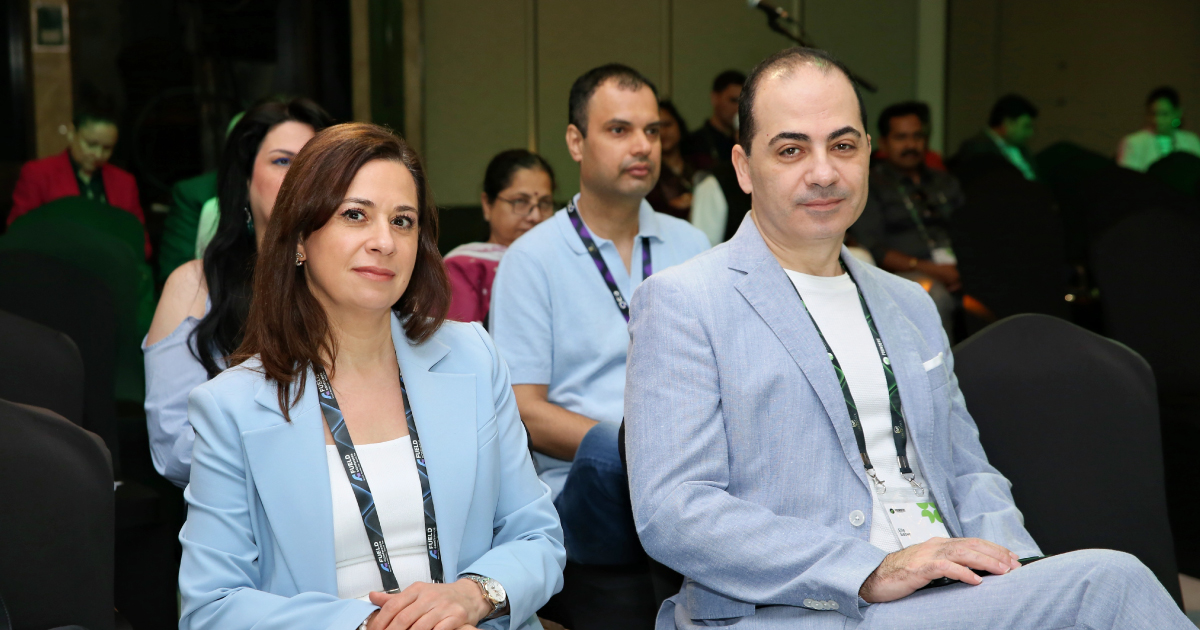
How Do Modern Leaders Envision The Future & Inspire Action
Posted on : December 22, 2025 -

The Future Of Business Development: 7 Strategic Moves To Drive Growth In 2026
Posted on : November 05, 2025 -
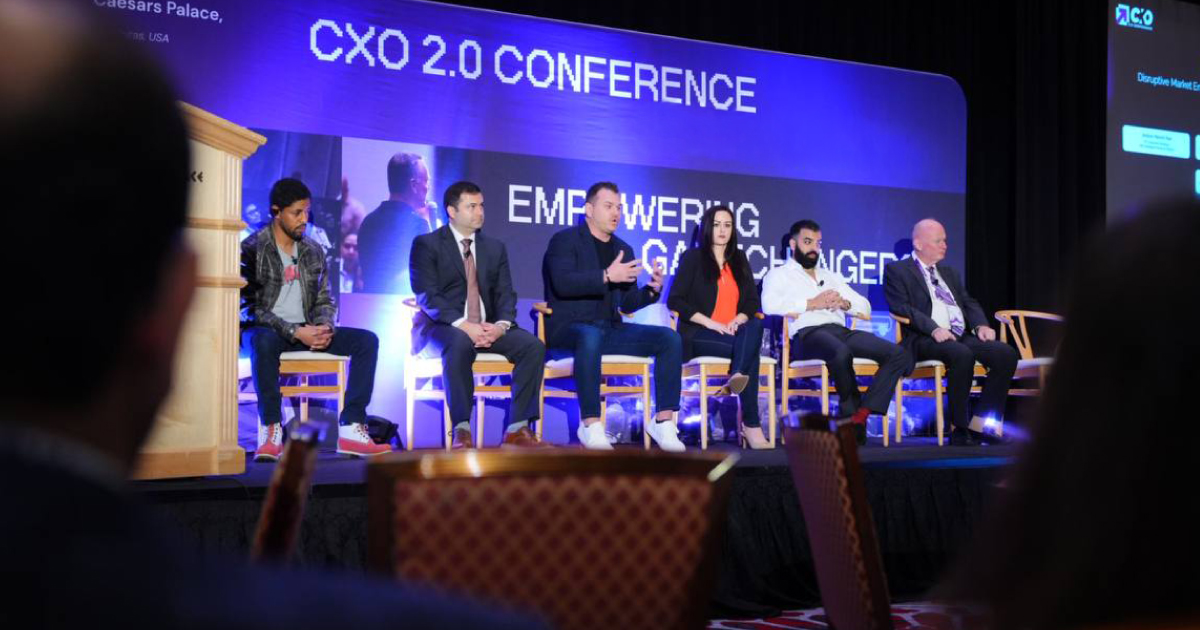
The 2025 Guide To Entrepreneurial Leadership For Purpose-Driven Business Growth
Posted on : October 10, 2025 -

Discover The Skills Every Executive Should Master At Our 2025 Leadership Summit
Posted on : October 03, 2025 -
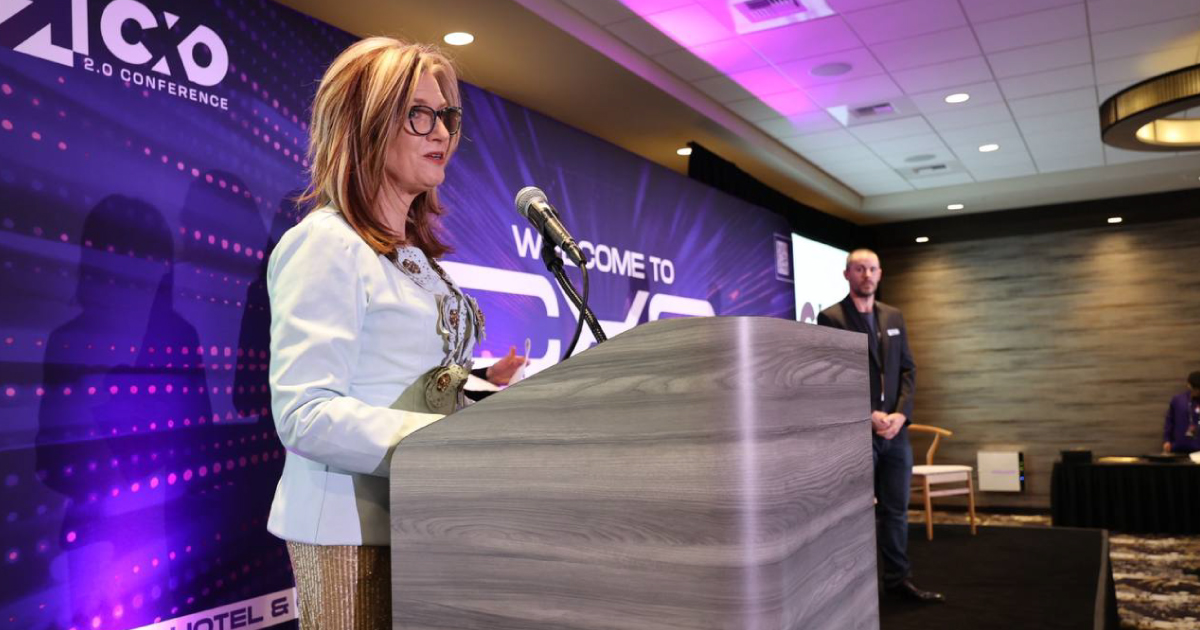
CXO 2.0 Conference Welcomes The Scale Agency As Its Official Marketing Partner
Posted on : September 26, 2025 -
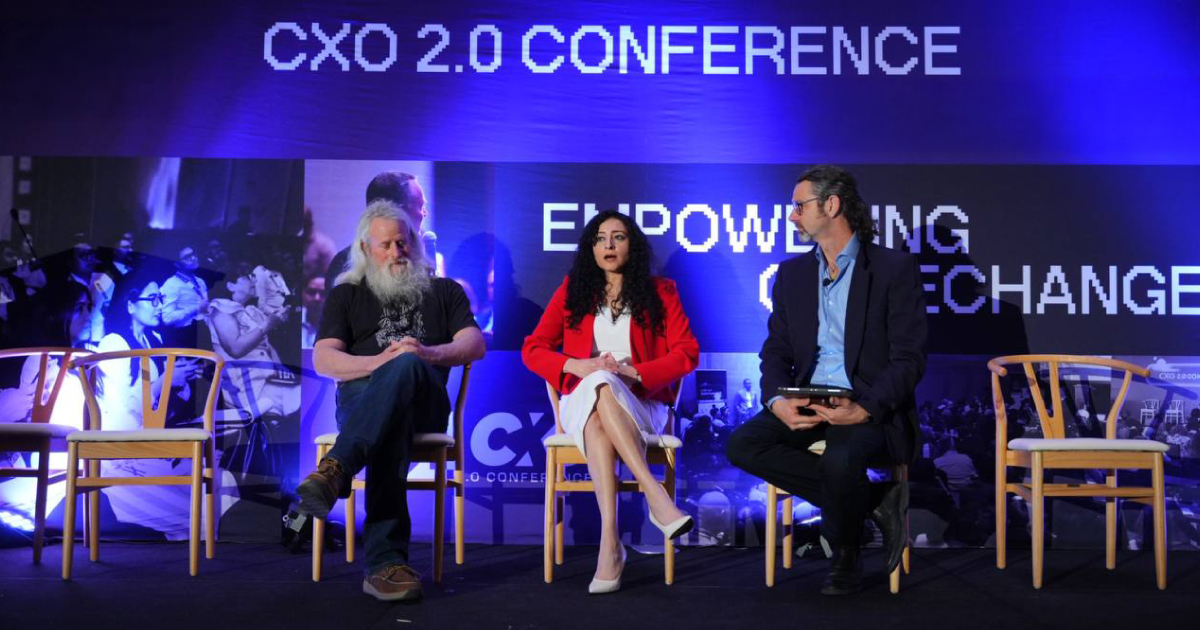
CXO 2.0 Conference Reveals 7 Leadership Trends Shaping 2025 And Beyond
Posted on : September 24, 2025 -

Your Insider Scoop On The CXO 2.0 Conference Student Pass Program
Posted on : July 24, 2025 -
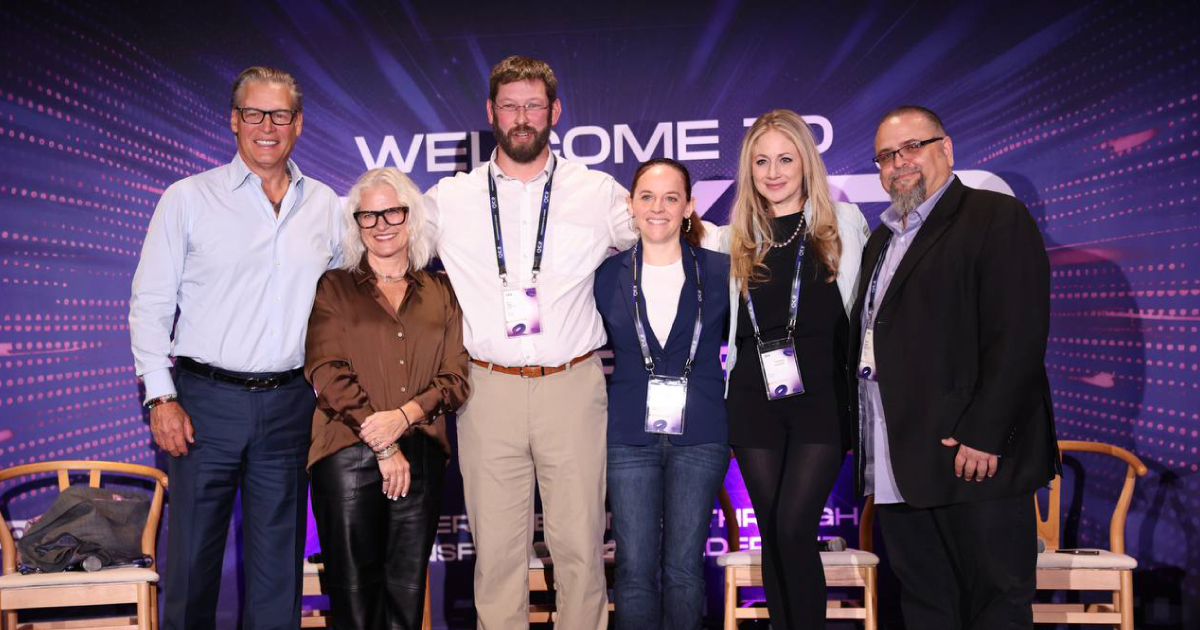
Who’s Attending CXO 2.0 Conference: A Glimpse Into Our Dynamic Community!
Posted on : July 01, 2025 -

5 Steps To Kickstart Your Business Planning For 2025
Posted on : June 23, 2025 -
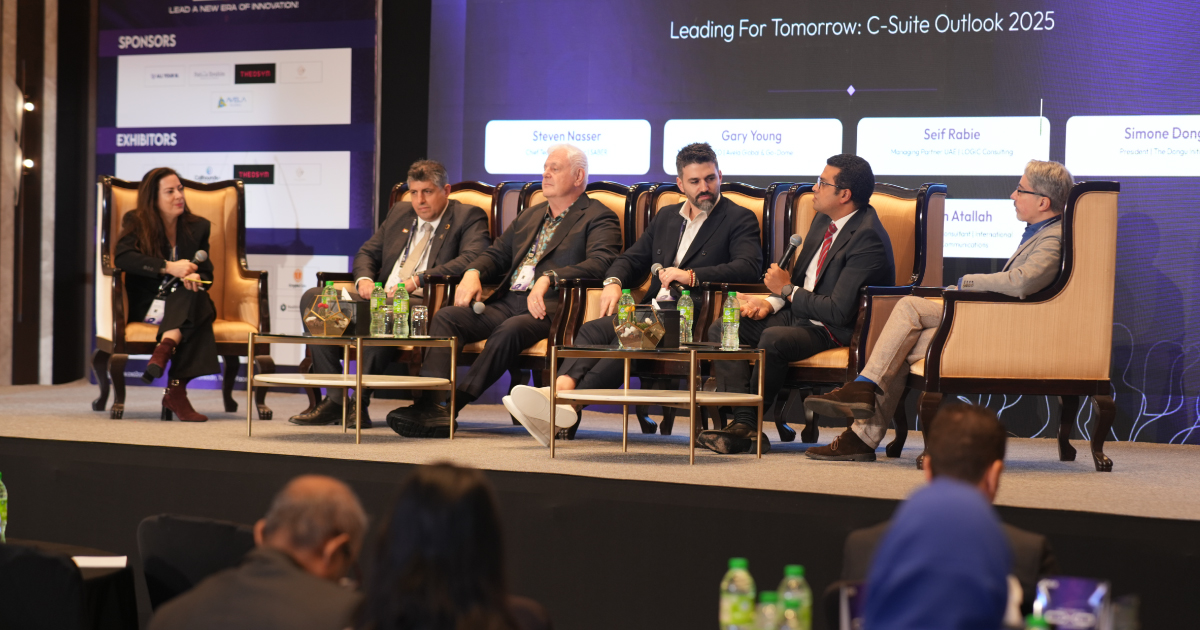
Inside The 2025 CXO 2.0 Conference: A Leader’s Space To Belong And Grow
Posted on : June 13, 2025
Posted on : March 21, 2025
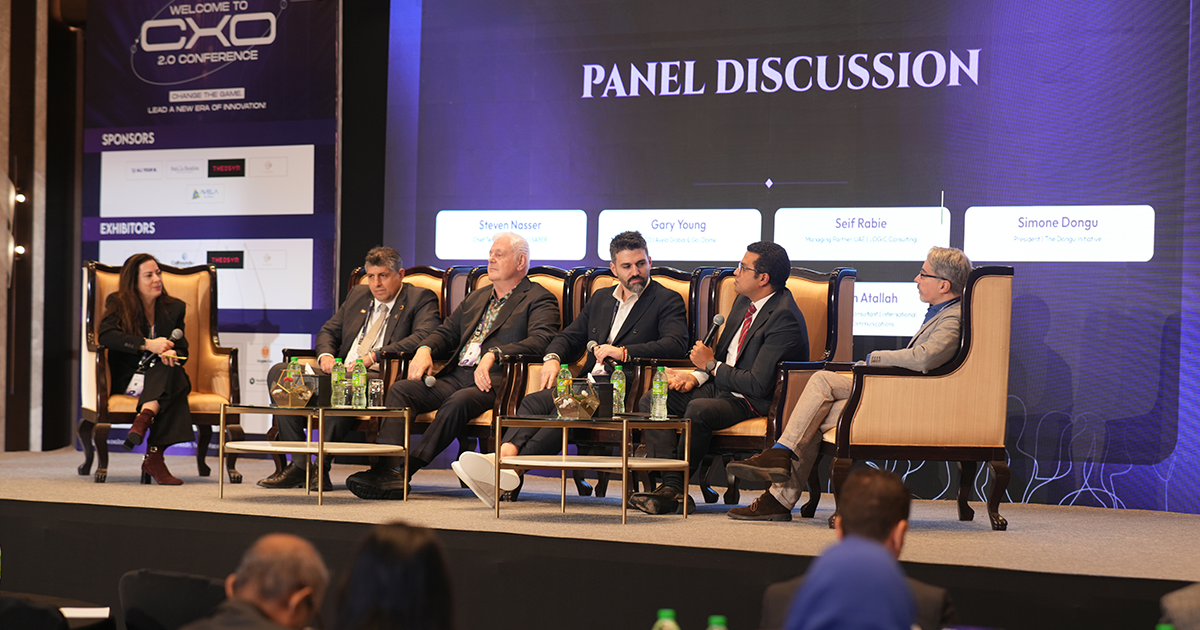
Workplaces are changing and leadership must evolve with them. Productivity isn’t about clocking in hours—it’s about trust, flexibility, and results. Hybrid leadership is redefining success, helping leaders build stronger, more engaged teams. Those who adapt are seeing higher performance, better collaboration, and a workforce that actually thrives.
Attending a leadership event in the USA , such as theCXO 2.0 Conference , is where top leaders uncover game-changing strategies for the future. The biggest names in leadership stress the power of adaptability, digital fluency, and trust to drive success. Let’s explore the ways hybrid leadership is reshaping team management. This piece explores key signs that indicate a leadership shift is needed, essential skills for success, and actionable steps to become a more effective leader.
Key Signs That It Is Time To Enhance Your Leadership Approach
If your current leadership approach feels rigid, it could affect team performance more than you realize. Here are key indicators that your leadership style may be outdated:
- Micromanagement Over Trust Excessive control over tasks can stifle creativity and lower morale. Trusting your team builds confidence and boosts productivity.
- Rigid Work PoliciesInsisting on fixed hours and mandatory office presence ignores modern work preferences. Flexibility often leads to higher engagement and better results.
- Avoiding New Technology Hesitation to adopt collaboration tools can slow team efficiency. Modern platforms help streamline communication and project management.
- Lack Of Empathy Ignoring employee well-being can lead to burnout and disengagement. Understanding personal challenges strengthens team loyalty and morale.
These signs suggest it may be time to rethink your leadership strategy. Experts of a top leadership event in the USA emphasize that outdated methods often limit team performance and morale. Modern leadership strategies focus on trust, flexibility, and measurable results.
How To Evolve Your Leadership Style For The Hybrid Era?
Adopting a hybrid leadership model involves intentional steps to create a supportive and productive work culture:
- Identify Leadership Habits That No Longer WorkReflect on current management practices to spot rigid approaches that may no longer fit flexible work environments. Recognize areas where adaptability can improve team collaboration.
- Explore New Leadership Skills For Hybrid SuccessCommit to ongoing learning by enrolling in leadership development programs that focus on hybrid team management, emotional intelligence, and remote collaboration strategies.
- Redefine Work Policies For FlexibilityDevelop clear, adaptable policies outlining expectations for availability, communication, and performance measurement to create a balanced work environment for both remote and on-site teams.
- Embrace Ongoing Feedback For GrowthGather your team's input regularly about their work experiences and challenges. Use this feedback to fine-tune leadership strategies while maintaining productivity goals.
This transition requires a mindset shift where leaders focus on empowering their teams rather than controlling them. To explore expert insights on effective leadership strategies, the CXO 2.0 Conference offers valuable sessions that dive deeper into modern leadership approaches.
Why Adapting To Hybrid Work Drives Team Success?
Embracing modern leadership practices unlocks new growth opportunities. Here’s why adapting is essential:
- Retains Top TalentFlexible work environments attract high-performing professionals. Organizations that embrace hybrid leadership create a work culture that values work-life balance, increasing employee satisfaction and retention.
- Boosts ProductivityA results-driven approach empowers employees to work efficiently. By allowing flexibility, teams stay motivated, creativity flourishes, and overall productivity improves.
- Strengthens CollaborationEffective hybrid strategies integrate remote and in-office teams seamlessly. Transparent communication and digital collaboration tools ensure alignment, reducing silos and enhancing teamwork.
- Drives Long-Term GrowthOrganizations that modernize their leadership approach stay competitive. Experts at the leadership summit in 2025 emphasize that adaptability leads to sustained team success and business resilience.
Experts at the leadership summit in 2025 highlight that embracing modern leadership approaches enhances team performance and drives long-term growth. Leaders who adopt hybrid strategies gain a competitive edge, enhancing innovation, improving collaboration, and building a resilient workforce for long-term success.
Why Leadership Events Focus On Hybrid Leadership?
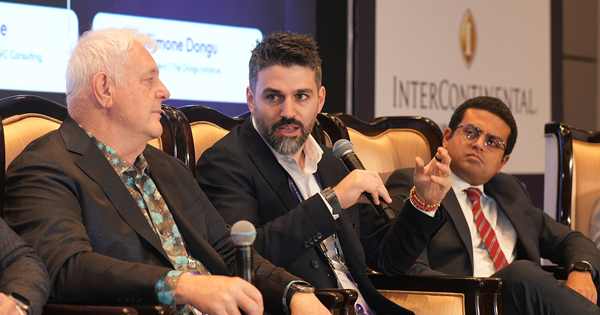
Hybrid leadership has become essential as workplace expectations evolve. Here is why forward-thinking organizations are shifting toward this model:
- Attracts Top Talent Flexible work options are key for professionals seeking growth and balance.
- Boosts ProductivityProductivity rises when employees are allowed to work in ways that suit them best.
- Encourages CollaborationBlending in-person meetings with digital collaboration tools strengthens teamwork and innovation.
- Supports Retention Companies that offer work flexibility often experience higher employee satisfaction and loyalty.
A hybrid leadership style nurtures an environment that empowers employees to achieve their highest potential.
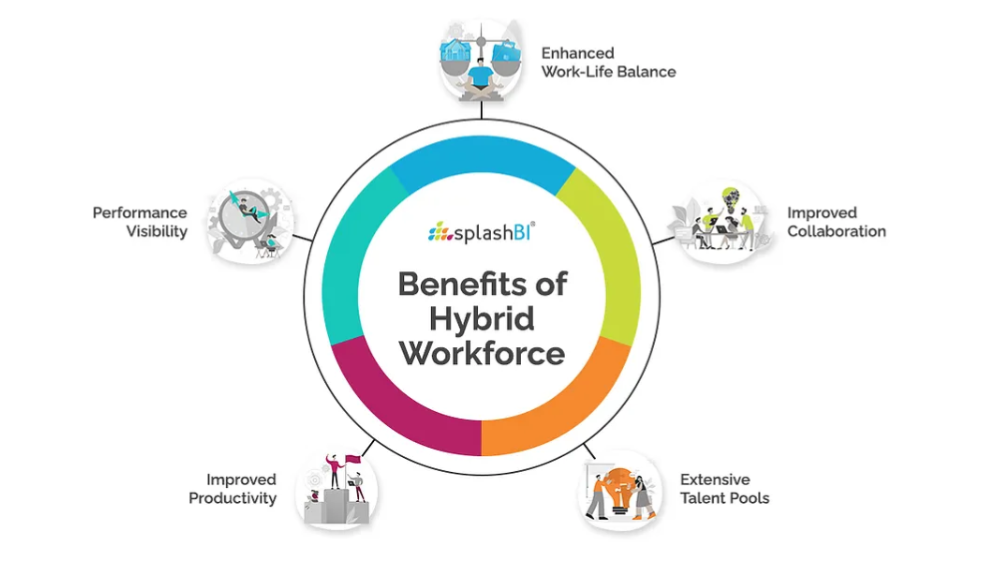
Source - SplashBI
What It Takes To Be An Effective Hybrid Leader?
Shifting to a hybrid leadership style requires developing core skills that balance flexibility with effective management.
- Empathy And Emotional Intelligence Understanding the unique challenges of remote and in-office work helps build stronger team connections. Empathetic leaders listen actively, consider employee well-being, and create a supportive work culture.
- AdaptabilityBeing open to changing workflows and evolving team needs is essential. Leaders must remain flexible, adjusting strategies based on performance feedback and evolving work conditions.
- Digital Competency Mastery of collaboration tools like Slack, Microsoft Teams, and project management platforms is essential for smooth operations in a hybrid setting. Digital fluency ensures all team members stay connected and productive.
- Outcome-Oriented LeadershipEffective hybrid leaders focus on results rather than the number of hours worked. They emphasize goal-setting, accountability, and performance metrics to measure success.
Developing these skills is essential for building trust and sustaining high performance across diverse work setups. Experts at the leadership summit in 2025 emphasize that mastering these qualities helps leaders create stronger, more cohesive teams in today’s evolving workplace.
Attend Leadership Events To Stay Ahead!
Leadership styles that once worked no longer meet the demands of today’s evolving workplaces. Clinging to rigid strategies can weaken collaboration, lower morale, and push top talent away. Hybrid leadership offers a more innovative path by blending remote and in-office management with flexibility, empathy, and performance-driven strategies.
Mastering hybrid leadership has become a focus at every leadership event in the USA , emphasizing the need for flexibility and accountability. The CXO 2.0 Conference highlights essential skills like emotional intelligence, adaptability, and digital fluency. Now is the time to rethink your leadership style, embrace change, and create a work culture where trust, innovation, and productivity thrive.
FAQs
Q1. Why is hybrid leadership becoming a must-have for modern businesses?
A. Modern businesses need leadership that keeps pace with evolving work models. Hybrid leadership offers the flexibility that today’s workforce demands while keeping productivity high. Balancing in-office collaboration with remote flexibility helps businesses build resilient, high-performing, engaged, and motivated teams.
Q2. What are the main themes of the upcoming CXO 2.0 Conference?
A.The upcoming CXO 2.0 Conference will delve into pivotal themes shaping the future of business leadership. Key topics include Digital Transformation and Innovation, focusing on strategies to optimize processes and enhance customer experiences, and Sustainable Business Practices, emphasizing ethical decision-making and long-term sustainability. For a comprehensive overview of all themes, please visit our official website - https://www.cxo2conf.com/theme.
Q3. How can leaders create stronger trust in a hybrid setup?
A. Building trust in a hybrid work model requires more than regular meetings. Transparent communication, consistent recognition, and empowering employees with autonomy make a real difference. Prioritizing results over micromanagement while giving equal growth opportunities builds a culture of accountability and mutual respect.
Q4. How can leaders avoid common mistakes when shifting to hybrid leadership?
A.Rigid control, poor communication, and neglect of employee well-being hold teams back in hybrid setups. Leaders can avoid these pitfalls by focusing on flexibility, effectively using collaboration tools, and maintaining regular feedback loops. Shifting the focus to results while promoting work-life balance ensures long-term success.
Q5. What mindset shifts are necessary for effective hybrid leadership?
A.. It is essential to shift from control-driven to results-focused leadership. Leaders must avoid monitoring physical presence and instead focus on performance outcomes. Embracing flexibility, empowering teams with trust, and being open to continuous learning are key mindset shifts for success.

